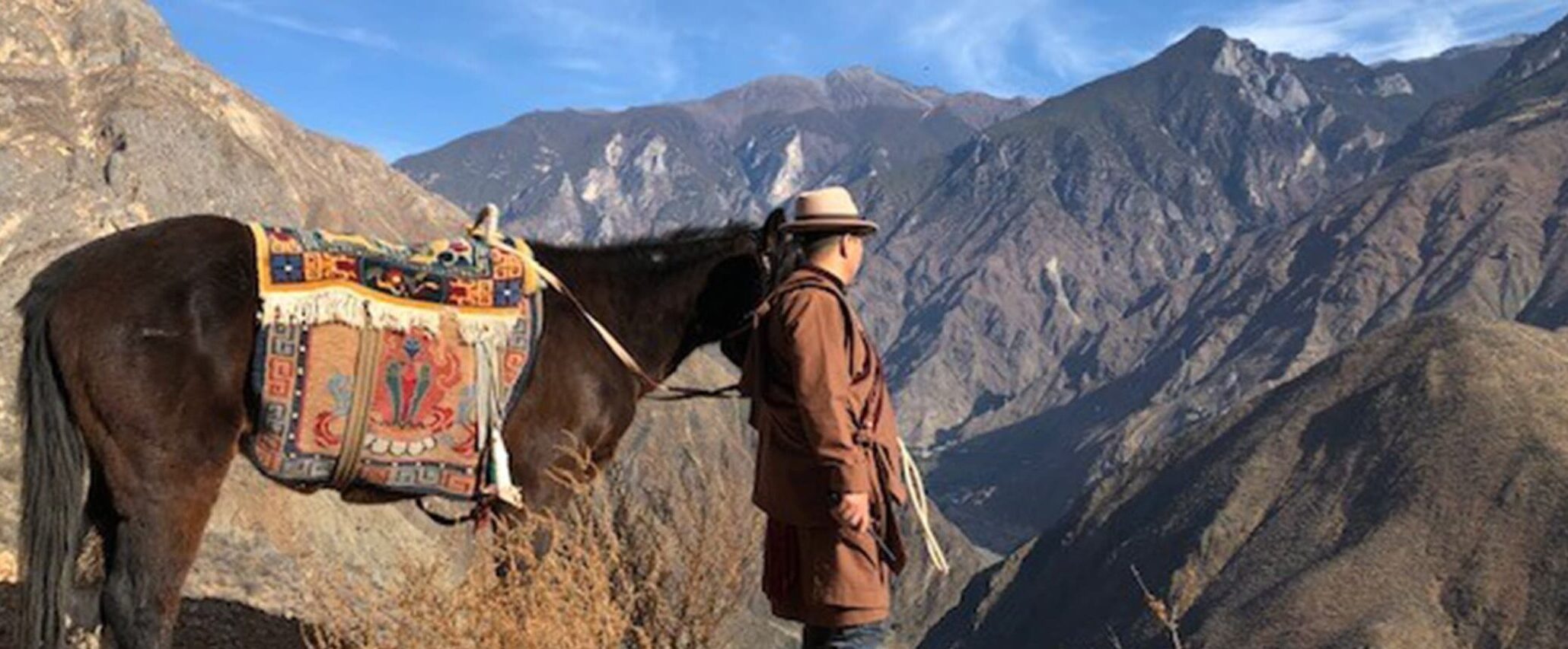
Stories of the Tea-Horse Caravan Road
Himalayan Heritage Online
Thursday, September 10, 2020
5:00 PM–6:30 PM
Kesang Tashi was a 10-year-old boy when he joined what became one of the last great mule caravan journeys across the Tibetan highlands from Chamdo to Lhasa. The young Tashi discovered Tibet as he was leaving it. He made a solemn vow in the awesome silence of the mountains to return and continue the work of his forebears. Decades later he fulfilled this promise through his devotion to revitalizing Tibet’s rug weaving heritage as the first foreign businessmen in Tibet and the last one still actively engaged. Tashi is now preparing to revive his grandfather’s wildly popular tea company, which was started in 1938.
Join Kesang Tashi in conversation with Sienna Craig, Professor of Anthropology at Dartmouth College, in a special Himalayan Heritage event to learn more about Kesang’s remarkable life story—how a young boy’s promise to return to his homeland transformed his life and that of his community for generations. The revitalization of Tibet’s rug weaving heritage with the help of old master craftsmen, followed by the revival of his grandfather’s Flaming Gem Label Tea, comprise Tashi’s swan song, as he passes the torch to the next generation of Tibetan entrepreneurs.
This program is hosted by Tashi Chodron, Himalayan Cultural Programs and Partnerships, Rubin Museum of Art, and followed by a Q&A.
About the Speakers
Kesang Tashi was born in Gyalthang in Eastern Tibet to a Khampa merchant family who, for generations, was a part of the Tea Horse Caravan trade route that ran from the frontier region of Gyalthang to Lhasa in Central Tibet and beyond to Kalimpong, the Himalayan hill town in India. He is the founder of Innerasia, a company that works directly with artisans inside Tibet to revitalize its rug weaving heritage. The company has been doing this work since as early as 1988, in the post-Cultural Revolution era, when the Tibet Autonomous Region first reopened its doors. Tashi worked with master weavers to restore the rug weaving industry by providing training and thereby generating a livelihood for a new generation of weavers, yarn carders, yarn spinners, dyers, and carvers. He also helped revive traditional hand-painted wood furniture making, thangka and miniature painting arts, and textile weaving. In the midst of these activities, it dawned on him that his return to and engagement in Tibet was in many ways continuing the unfinished work of his grandfather. Tashi is the only foreigner and business enterprise to be actively engaged in Tibet from the 1980s to present time. Tashi is a graduate of Dartmouth, and he studied Buddhist philosophy at the University of Wisconsin under Geshe Lhundup Sopa. He is a recognized authority on Tibetan rugs and has published Of Wool and Loom: Tradition of Tibetan Rugs (2006). In 2019 the BBC filmed an episode of a forthcoming series entitled One Cup, a Thousand Stories on the history of tea that features Tashi and his family’s tea story .
Sienna R. Craig is Associate Professor of Anthropology at Dartmouth College in Hanover, New Hampshire. A medical and cultural anthropologist as well as a creative writer, she works with Himalayan and Tibetan communities in Asia and North America. Her books include The Ends of Kinship: Connecting Himalayan Lives Between Nepal and New York (2020), Healing Elements: Efficacy and the Social Ecologies of Tibetan Medicine (2012), and Horses Like Lightning: A Story of Passage through the Himalayas (2008).

Himalayan Heritage programs are supported by Heather Beth Henson.
This program is co-presented with The Latse Project and InnerAsia Rugs.
The Latse Project is a NY/NJ-based nonprofit organization that promotes literacy and knowledge sharing in the Tibetan language.
Free, registration required

